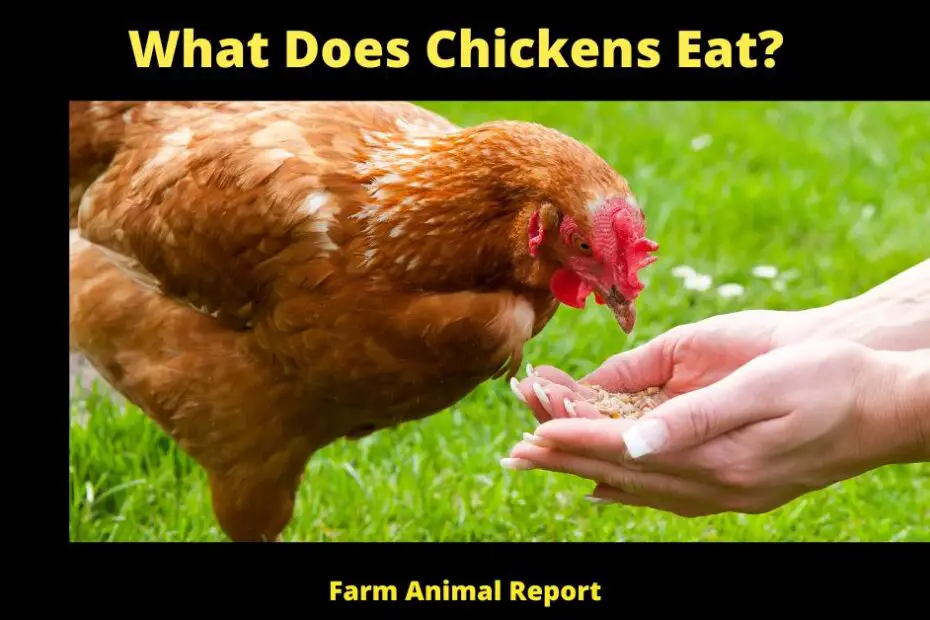What do chickens eat? This is a question that many people have, and it’s not as straightforward as you might think. Chickens are omnivores, which means that they can eat both plants and animals. In the wild, chickens will eat a variety of things, including insects, seeds, fruits, and other small animals. However, in order to keep your chickens healthy, you will need to provide them with a balanced diet. In this blog post, we will discuss the types of food that chickens can eat and provide some tips on how to create a healthy chicken diet.
What Do Chickens Eat?
Chickens are omnivores, which means that they will eat both plants and animals. In the wild, chickens will eat a variety of things, including insects, small mammals, and even snakes. However, most domestic chickens are fed a diet of commercial chicken feed, which is typically made from corn and soybeans. Some chicken owners also like to supplement their chicken’s diet with scraps from the kitchen, such as vegetable peelings or leftover rice. As long as it is given a well-rounded diet, a chicken will usually be healthy and happy.
What Types of Food Chickens Eat
The exact composition of chicken feed depends on the age and breed of the chicken, but it typically includes some combination of corn, soybeans, wheat, and limestone. Supplementing this diet with scraps from the kitchen is a good way to reduce waste and provide your chickens with a little extra variety. Just be sure to avoid feeding your chickens anything that is moldy or rotten, as this can make them sick.
Also, any foods that are sugar-coated or have a lot of salt should be avoided as it can lead to health problems down the road. What Do Chickens Eat?
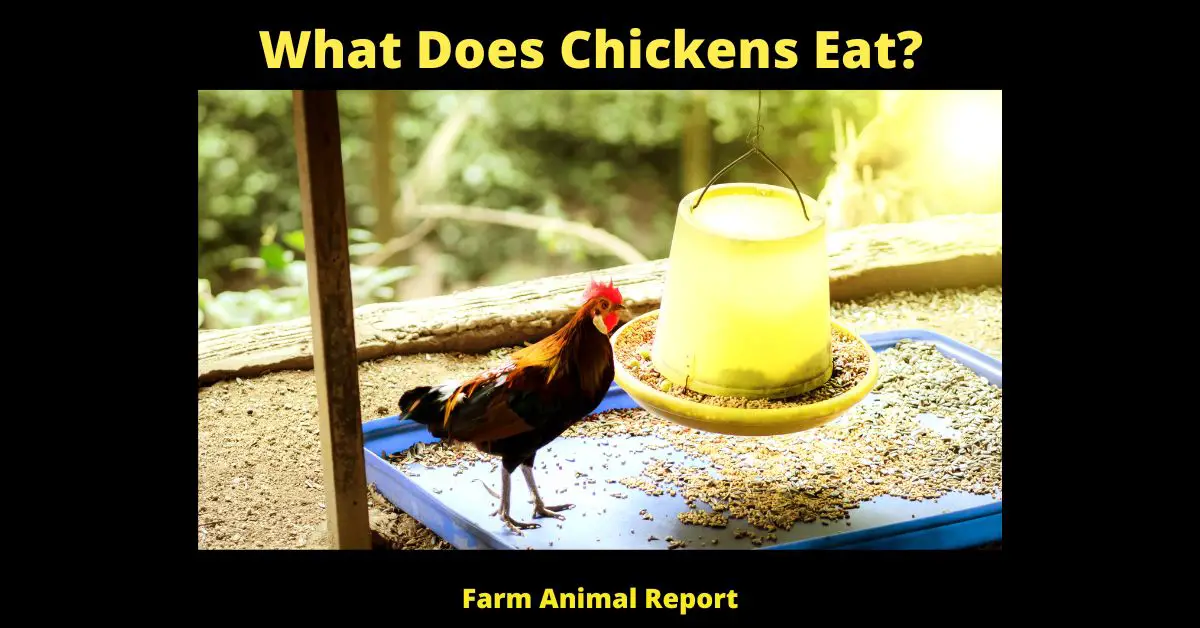
What are The benefits of feeding Chickens a Balanced diet?
A balanced diet is important for chickens for a number of reasons.
- First, it helps to ensure that they receive all the nutrients they need to stay healthy.
- Second, it can help to prevent digestive problems and other health issues.
- Third, it can improve the quality of their fresh eggs.
- And fourth, it can increase their overall lifespan. In order to achieve a balanced diet, chickens should eat a variety of different foods, including grains, vegetables, and insects. Some chicken owners also choose to supplement their birds’ diet with vitamins and minerals. By ensuring that their chickens eat a balanced diet, owners can help to keep them happy and healthy.
How to feed your Chickens the Right Way
Just like any other pet, chickens need to be fed a healthy and balanced diet in order to live long and happy lives. While they will naturally peck at insects and grubs, this is not enough to provide them with all the nutrients they need. A typical chicken diet should consist of commercial chicken feed, as well as scratch grains, greens, and occasional treats.
When it comes to commercial chicken feed, there are two main types: crumble and pellets. Crumble is finer and easier for chickens to eat, while pellets are larger and last longer. either way, you should make sure that your chickens have access to fresh water at all times. Chicken feed can get moldy quickly, so it’s important to check it regularly and discard anything that looks off.
As for scratch grains, these can include things like corn, oats, and wheat. They are a great way to add some variety to your chickens’ diet, and they love pecking at them. Just be sure not to overdo it, as scratch grains should only make up around 10% of their overall diet.
Finally, greens such as lettuce, kale, and spinach are packed with nutrients and make a great addition to your chickens’ diet. Chop them up into small pieces so that your chickens can easily eat them. You can also offer them occasional best treats, and healthy snacks, such as cooked rice, pasta, or boiled eggs. Just be sure not to give them too much, as these should only make up around 20% of their overall diet.
What are the Symptoms of Chickens that are not eating Properly?
Chickens that are not eating properly may exhibit a number of different symptoms. They may have a reduced appetite, lose weight, or stop laying eggs. Additionally, they may exhibit behavioral changes such as listlessness or aggression.
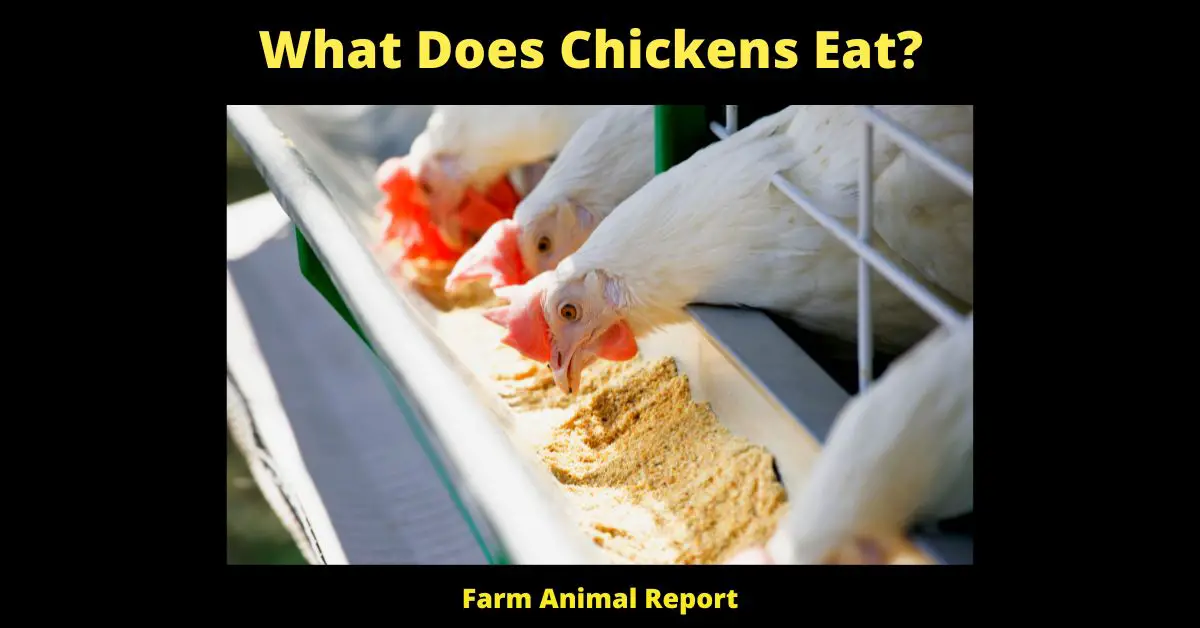
Chickens that are not eating properly may also have physical changes such as feathers that are frayed or breaking, or combs that are pale or sunken. If you suspect that your chicken is not eating properly, it is important to consult a veterinarian to rule out any underlying medical conditions.
Once any health issues have been ruled out, you can work on increasing your chicken’s appetite by offering them more variety in their diet, providing them with access to fresh water, and ensuring that their coop is clean and comfortable.
What to do if your Chicken isn’t Eating Properly
Chickens are omnivorous creatures and will generally eat almost anything. However, there are times when a chicken may go off its food. This can be due to a number of reasons, including stress, illness, or a change in its diet. If you notice that your chicken isn’t eating properly, there are a few things you can do to try and get it back on track.
First, check to see if there is anything different in its environment that may be causing stress. If there have been any changes, such as new animals or people in the area, try to return things to the way they were before.
Next, take a look at its diet and see if anything has changed recently. If you’ve introduced any new foods, it’s possible that your chicken isn’t fond of them. Try removing the new foods and see if its appetite improves.
Finally, if you suspect that your chicken may be ill, consult a veterinarian for advice. With a little patience and care, you should be able to get your chicken back to eating normally in no time.
How Much to Feed My Chickens?
The amount of food you give your chickens depends on several factors, including their age, weight, and activity level. Additionally, the type of food you’re feeding them will also affect how much they need to eat. For example, a chicken who is eating mostly pellets will need less food than a chicken who is eating a lot of scratch mix. In general, however, most chickens will need between 2-4 ounces of food per day.
It is important to know how much to feed your chickens so that they remain healthy and productive. Chickens need a balanced diet of carbohydrates, protein, fat, vitamins, and minerals.
The amount of each nutrient will vary depending on the age and stage of development of the chicken. For example, chicks need more protein than mature chickens because they are growing quickly. However, all chickens need a minimum amount of each nutrient in order to stay healthy.
One way to ensure that your chickens are getting the right nutrients is to feed them commercial chicken feed that is formulated to meet their specific needs. Another option is to mix your own chicken feed using a recipe that includes all of the necessary nutrients. Whichever method you choose, be sure to monitor your chickens closely to make sure they are getting the nutrients they need.
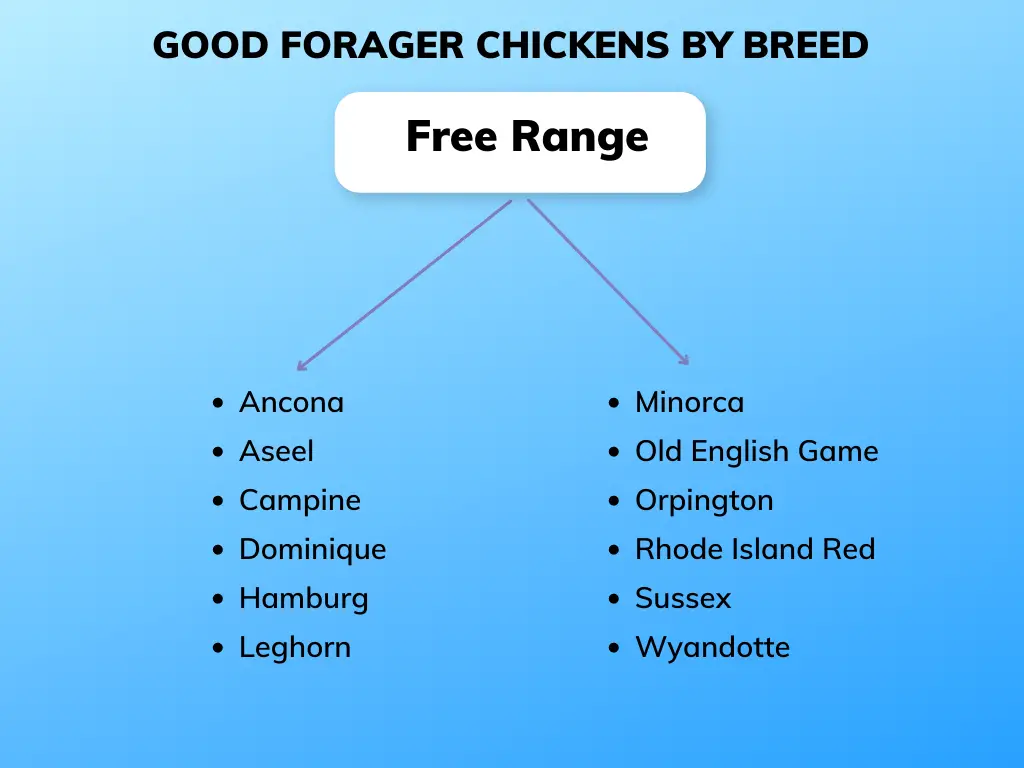
What is Feed Conversion in Feeding Adult Chickens
Most commercial Farmers (factory Farms) Monitor this;
Feed conversion is the ratio of how much feed it takes to produce a certain amount of meat, eggs, or milk. For example, if it takes two pounds of feed to produce one pound of chicken, then the feed conversion ratio is two-to-one.
The lower the number, the more efficient the chickens are at converting feed into an edible product. There are many factors that affect feed conversion, including age, breed, health, and environment.
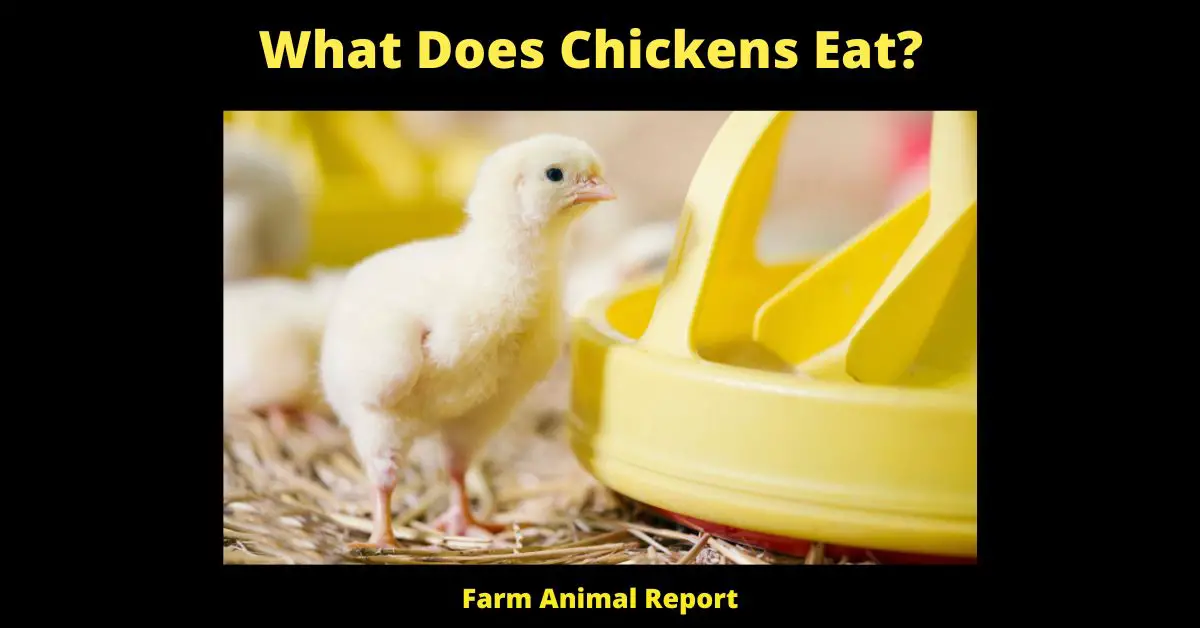
For instance, younger chickens tend to have better feed conversion than older chickens because they are still growing and haven’t reached their full size yet. In general, larger chickens also have better feed conversion than smaller chickens because they can eat more food in a day. Additionally, healthy chickens usually have better feed conversion than sickly chickens because they can absorb nutrients from their food more effectively.
Finally, chickens that are raised in clean and spacious environments tend to have better feed conversion than those that are raised in cramped and dirty conditions. All things being equal, the bird with the best feed conversion is the one that produces the most meat, eggs, or milk per pound of food consumed.
How Much does Chicken Feed Cost?
The cost of chicken feed can vary depending on a number of factors, including the type of feed and the size of the bag. However, it is generally agreed that chicken feed typically costs between $10 and $20 per bag. The type of feed will also affect the price, with specialty feeds often costing more than standard chicken feeds.
For example, a 50-pound bag of organic chicken feed may cost $30, while a similar bag of non-organic feed may only cost $20. The price of chicken feed can also vary depending on the time of year and the region in which you live. In general, chicken feed is more expensive in the winter months and in areas with a higher cost of living.
However, by shopping around and comparison shopping, you should be able to find a good deal on chicken feed for your flock.
What to Feed Chicks
Newly Hatched Chicks can survive 2-3 days without feed and water. But the sooner they eat the better it is for them. Access to fresh clean water can help to minimize pasting.
Chick Starter Feed is Great for the First Few Weeks. For the first few weeks, you should feed your chicks a special food called chick starter. Chick starter is a type of chicken feed that is specifically designed for (baby chicks)young chickens. It is higher in protein than regular chicken feed, which helps baby chickens grow quickly.
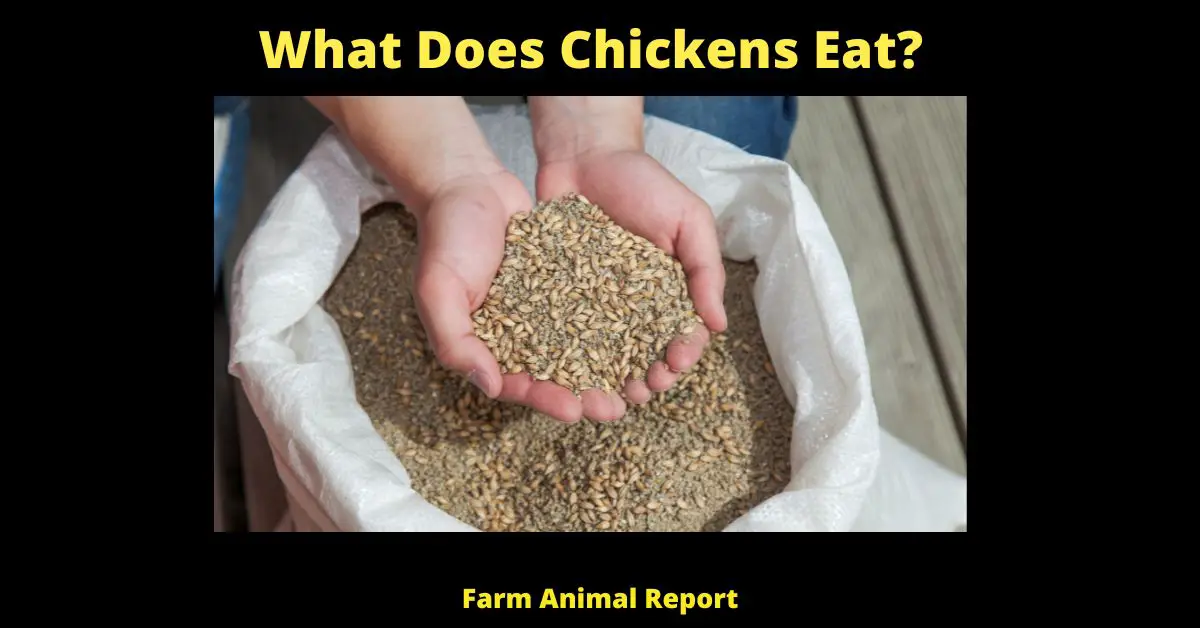
Chick starter is also medicated, which means it contains drugs that help prevent common diseases that affect young chickens. After about six weeks, you can start slowly transitioning your chicks to regular chicken feed. However, it is important to do this gradually, as sudden changes in diet can cause health problems for chickens of all ages.
What to Feed Pullets?
A pullet is a young chicken that is usually less than a year old. While the term can technically refer to any young chicken, it is most commonly used to describe chickens that are being raised for egg production. Because of this, it is important to ensure that pullets are getting the proper nutrition to lay healthy eggs.
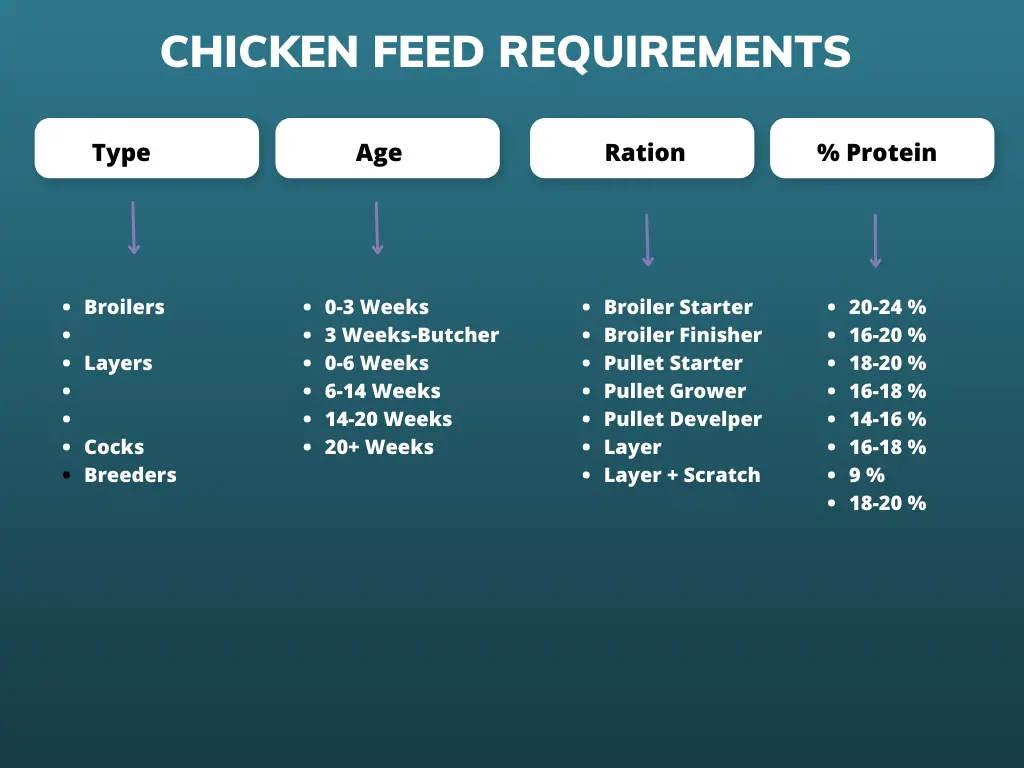
For the first few weeks of life, pullets can be fed a standard chick starter feed. This feed is high in protein and helps them to grow rapidly. Once they reach about six weeks of age, they can be switched to a grower feed, which has slightly lower protein levels.
Finally, when they are about 16 weeks old, they can be switched to laying hen feed, which is designed to promote egg production. By following these simple steps, you can ensure that your pullets are getting the nutrition they need to lay healthy eggs.
What To Feed Broilers?
There are a few things to keep in mind when it comes to feeding broiler chickens. First, they need a diet that is high in protein in order to support their rapid growth. A good quality broiler feed will contain at least 20% protein. Second, broilers should be given a constant supply of fresh, clean water. They are very susceptible to dehydration, so make sure they always have access to water.
Third, broilers should be fed small meals multiple times a day rather than one large meal. This helps them to digest their food more effectively and prevents them from becoming overweight. Lastly, don’t forget to provide them with plenty of fresh air and exercise. Broilers that are confined to small spaces are more likely to develop health problems. So give them plenty of room to move around and let them get some fresh air every day.
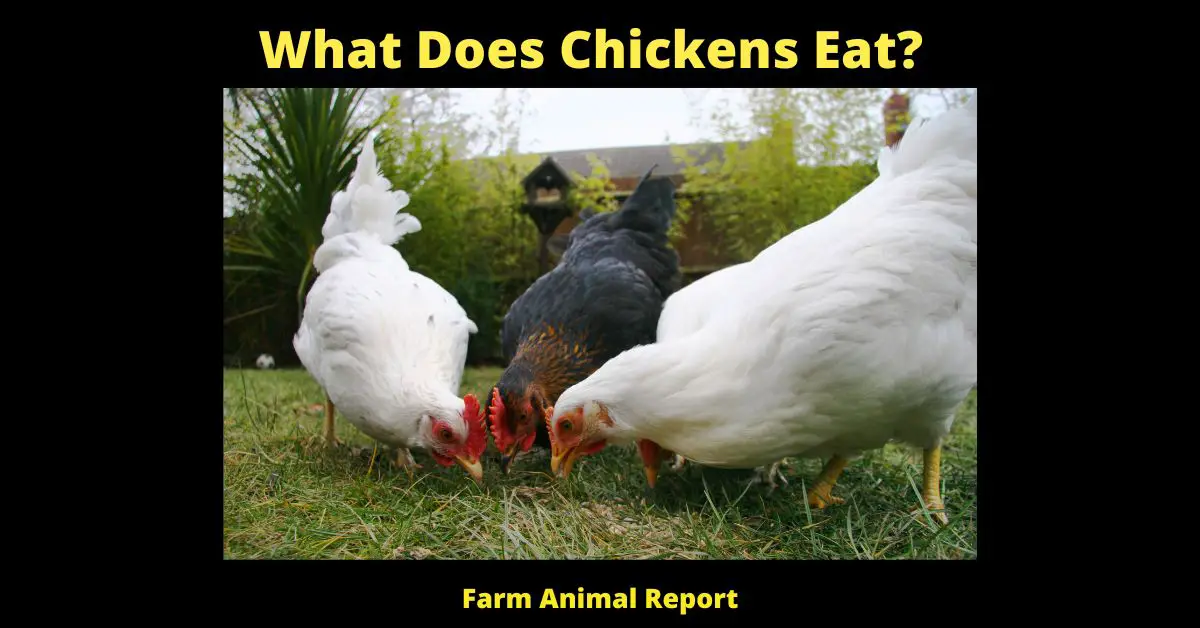
What to Feed Chicken Breeders?
A Breeder Ration Contains;
When it comes to chicken feed, there is no one-size-fits-all solution. The type of feed you need to provide will depend on the age, breed, and weight of your chickens. For example, chicken breeders will require a different ration (food sources) than laying hens.
Breeder rations are typically higher in protein and energy to help support the bird’s reproductive system. In addition, breeder rations may also contain higher levels of vitamins and minerals to help ensure the hen produces strong, healthy offspring.
While it’s important to provide the right type of feed for your flock, it’s also essential to offer fresh, clean water at all times. Water plays a vital role in helping chickens stay hydrated and cool, and it’s also necessary for the absorption of nutrients from food. By offering a balanced diet and plenty of clean water, you can help ensure your chickens remain healthy and productive.
What to Feed Laying Hens?
Laying hens, also known as egg-laying chickens, are a special breed of chicken that is used for commercial egg production. While there are many different types of laying hen feeds available on the market, it is important to choose a feed that meets the specific needs of your flock.
One of the most important factors to consider when choosing a feed (layer feed) is the protein content. Laying hens require a higher level of protein than other types of chickens, in order to produce high-quality eggs. In addition to protein, laying hens also need a balance (small amounts) of other nutrients, including calcium and vitamin D, and oyster shells, in order to maintain their health and laying ability. Commercial Feeds, leafy greens, and scratch grain are all essential nutrients.
They will eat less in the summer than in the winter. This is normal behavior since they don’t need as much food to generate body heat when the weather is warm. You can help them stay cool by providing plenty of fresh, clean water and shade during the hot summer months, a secure chicken coop. You may also want to consider switching to a lighter ration if your hens are eating less than usual.
You can buy Lay Ration from any good Feed Store.
What to Feed Setters?
A setting hen will eat 1/5 the amount she usually eats. When she leaves her nest she will generally consume more water than food for the first few days. It is important to give her access to both during this time as she re-acclimatizes herself.
A setter ration should have a higher protein content than a layer ration as well as more calcium. She should be fed Scratch to help her maintain her body weight and energy levels.
A setter ration is a complete feed and does not require any supplementation.
What to Feed growers?
Grower rations are typically higher in protein than other types of chicken feeds, as they are designed to support the bird’s rapid growth during this stage of its life. In addition to protein, growers also need a balance of other nutrients, including calcium supplements and vitamin D, in order to maintain their health and growth.
While it’s important to provide the right type of feed for your flock, it’s also essential to offer fresh, clean water at all times. Water plays a vital role in helping chickens stay hydrated and cool, and it’s also necessary for the absorption of nutrients from food. By offering a balanced diet and plenty of clean water, you can help ensure your chickens remain healthy and productive.
What to Feed Show Chickens?
Experienced show exhibitors will generally feed their birds a custom diet that is designed to promote optimal health and plumage. While there is no one-size-fits-all show chicken diet, there are certain nutrients that all show birds need in order to stay healthy and look their best.
One of the most important nutrients for show chickens is protein. Protein helps support the bird’s immune system and helps promote healthy plumage. In addition to protein, show chickens also need a balance of other nutrients, including calcium and vitamin D, in order to maintain their health and plumage.
Avoid Yellow corn tends to turn to fat. Oil-Rich feed will enhance the feathers and promote bloom. Good oils are;
- Safflower Seed Feed Meal
- Sunflower seed Feed Meal
- Flaxseed Feed Meal
- or Linseed Meal
- Some show breeders will give a tiny amount of quality canned cat food daily also
What to Feed Roosters?
When it comes to feeding roosters, there are a few things to keep in mind. First of all, it’s important to give them a balanced diet that includes plenty of protein and nutrients. scratch grains, live insects, and kitchen scraps. In addition, roosters also need access to clean water at all times. Here are a few ideas of what to feed roosters:
- Scratch grains: A mixture of cracked corn, wheat, and oats.
- Live insects: mealworms, crickets, and earthworms.
- Kitchen scraps: Vegetable scraps, fruit peels, sunflower seeds, sweet potatoes, and cooked rice or pasta.
- Clean water: Fresh water should be available at all times.
With a little planning, you can make sure your rooster has everything he needs to stay healthy and happy.
Final Thoughts – What Do Chickens Eat?
Free Range Chickens will have changing diets depending on their growth stage and the purpose you are raising them for. In general, all chickens (adult birds) need a balanced diet that includes plenty of protein and nutrients. What you feed your chickens should also depend on the season and whether or not they are molting. By taking the time to understand what chickens need to stay healthy, you can ensure your flock remains productive and happy for years to come. Thanks for reading!


